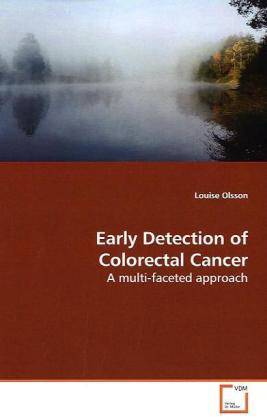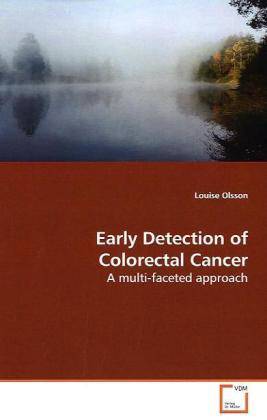
- Afhalen na 1 uur in een winkel met voorraad
- Gratis thuislevering in België vanaf € 30
- Ruim aanbod met 7 miljoen producten
- Afhalen na 1 uur in een winkel met voorraad
- Gratis thuislevering in België vanaf € 30
- Ruim aanbod met 7 miljoen producten
€ 71,95
+ 143 punten
Omschrijving
Early detection of colorectal cancer is a strategy for reducing death of the disease. Detection in this book refers to both clinical diagnosing and to presymptomatic detection of colorectal neoplasia. Five research projects, different in character are described. A population-based audit of the diagnostic process includes work-up times, the use of family history for risk assessment and the benefit of faecal occult blood test in symptomatic patients. The next study is an estimation of the importance of symptom duration in colorectal cancer on prognosis and it includes a description of symptoms by sublocalisation. Family history was meticulously mapped out for all colorectal cancer patients in one county during three years in the next project and a risk- stratified screening was proposed. Cancer of the sigmoid was identified as a separate entity. The last two studies are about faecal DNA and the use of mutations in the APC gene and microsatellite BAT 26 for detection of colorectal neoplasia. Results and implications for screening are discussed.
Specificaties
Betrokkenen
- Auteur(s):
- Uitgeverij:
Inhoud
- Aantal bladzijden:
- 52
- Taal:
- Engels
Eigenschappen
- Productcode (EAN):
- 9783639165401
- Verschijningsdatum:
- 16/06/2009
- Uitvoering:
- Paperback
- Formaat:
- Trade paperback (VS)
- Afmetingen:
- 152 mm x 229 mm
- Gewicht:
- 90 g

Alleen bij Standaard Boekhandel
+ 143 punten op je klantenkaart van Standaard Boekhandel
Beoordelingen
We publiceren alleen reviews die voldoen aan de voorwaarden voor reviews. Bekijk onze voorwaarden voor reviews.










